85 years ago today, beginning in the year of his election, Pope Pious XII gave a Christmas Eve radio broadcast with a passionate plea for peace on Earth, while denouncing the ideologies that had led to the outbreak of the Second World War. While mentioning none in particular, the targets of his statements were clear. He continued to use his position of high influence over faith and morals to renew calls for peace and reconciliation every Christmas Eve until the end of the war, not least among Italian Catholics in a country that was aligning itself with Germany. READ more… (1939)
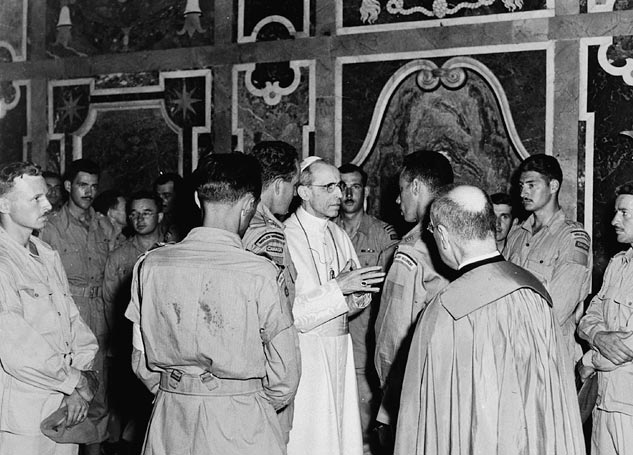
With great power comes great responsibility. While the Vatican’s official policy was neutrality, and while Pious XII’s actions and decisions during Europe’s darkest years are hotly debated, there were nevertheless tens perhaps hundreds of thousands of people whose lives were helped or saved altogether because Pious XII tried to take a humanitarian approach when he could.
MORE Good News on this Date:
- First broadcast of a music program on radio, from Massachusetts (1906)
- Albania became a republic (1924); Libya (1951) and Laos (1954) gained independence
- Happy 63rd Birthday to filmmaker Lee Daniels, who directed The Butler and his film Precious, which received 6 Academy Award nominations including Best Director, and also created the TV series Empire and Star (1959)
- A rare Christmas Eve snowstorm fell on the southern U.S. (2004)
153 years ago today, Verdi’s opera Aida premiered. Set in the Old Kingdom of Egypt, Aida was commissioned to celebrate the opening of the Khedivial Opera House in Cairo—and the Italian composer Giuseppe Verdi got paid 150,000 francs for the masterwork.
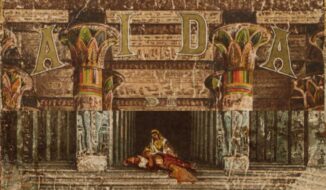
In the story, the Egyptians have captured and enslaved Aida, an Ethiopian princess. An Egyptian military commander, Radamès, struggles to choose between his love for her and his loyalty to the King of Egypt. To complicate the story further, the King’s daughter Amneris is also in love with Radamès, who does not return her feelings. Met with great acclaim, the opera was soon mounted at major opera houses throughout Italy. (1871)
And, on this date every year, the Declaration of Christmas Peace is read aloud at noon in the Old Great Square in Finland’s oldest city, Turku, a tradition dating back to the Middle Ages.
 With fanfare and warning, the declaration calls for quiet and peaceful conduct during the Christmas period, including no animal hunting. It is broadcast throughout the country every year on December 24.
With fanfare and warning, the declaration calls for quiet and peaceful conduct during the Christmas period, including no animal hunting. It is broadcast throughout the country every year on December 24.
And, 105 years ago today, the inventor Theophilus Van Kannel passed away, but he left the world a warmer more civilized place.
 On one cold day in wintery Philadelphia, Van Kannel sat working at the lobby desk in a busy building. Each time people entered and exited the main doors, Van Kannel was exposed to a chilling gust of wind and snow. He put his mind to work and shortly thereafter patented a solution—the revolving door.
On one cold day in wintery Philadelphia, Van Kannel sat working at the lobby desk in a busy building. Each time people entered and exited the main doors, Van Kannel was exposed to a chilling gust of wind and snow. He put his mind to work and shortly thereafter patented a solution—the revolving door.
On August 7, 1888, he won the patent which described, “Three radiating and equidistant wings . . . provided with weather-strips to ensure a snug fit. . . and perfectly noiseless. Moreover, the door cannot be blown open by the wind . . . there is no possibility of collision, and yet persons can pass both in and out at the same time.” The patent goes on to describe how a partition can be hinged so as to open and allow the passage of long objects through the revolving door.” The world’s first wooden revolving door was installed at Rector’s, a restaurant on Times Square in Manhattan to minimize their heating and air conditioning losses, and in 1889 he founded the Van Kannel Revolving Door Company. (1919)
And, on this day 206 years ago, the Christmas carol Silent Night (Stille Nacht) was composed in a few hours and performed in this little church in Austria.
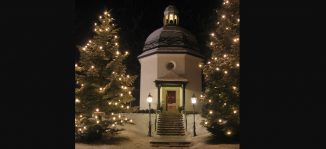
The parish priest Joseph Mohr, himself a violinist and singer, wrote the lyrics some two years earlier. He wanted to use it for Midnight Mass, so he walked nearly two miles (3 km) from his home in Oberndorf bei Salzburg to visit his friend Franz Xaver Gruber.
In only a few hours, Gruber, a school teacher who also served as the church’s choirmaster and organist, set his poem to music. The simple song was sung that evening in a simple arrangement for guitar and choir. Within a few years, arrangements of the carol spread to churches in the Salzburg Archdiocese by folk singers from the Ziller Valley who took the composition on tours around Europe—performing for audiences that included Franz I of Austria and Alexander I of Russia. Mohr’s name was almost lost.
Over the years, because the original manuscript had been lost, Mohr’s name was forgotten and although Gruber was known to be the composer, many people assumed the melody was composed by a famous composer—and it was variously attributed to Haydn, Mozart, or Beethoven. However, a manuscript was discovered in 1995 in Mohr’s handwriting proving that he authored the poem in 1818.
Recorded by a large number of singers from every music genre, the version sung by Bing Crosby became the third best-selling single of all time. During his life, Mohr also created a fund to allow children from poor families to attend school and set up a system for the care of the elderly. (1818)
And, on this day in 1914, the Christmas truce of World War I began when German troops fighting in Belgium began decorating their trenches and singing Christmas carols.
The British troops on the other side soon joined in the singing and soon these soldiers greeted each other on the plains between them, putting the war on hold while exchanging gifts of whiskey and cigars. Watch a wonderful depiction below…
SHARE the Milestones, Memories, and Music…





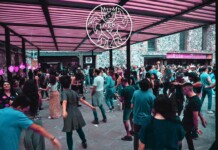














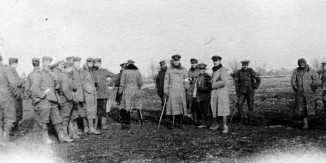
For anyone who is interested, the Christmas truce of World War I was made into a movie in 2005 called Joyeux Noel. It is really quite a nice, heartwarming story to watch, about the power and universality of Christmas and music being able to bring people together.
[…] The Good News Network […]